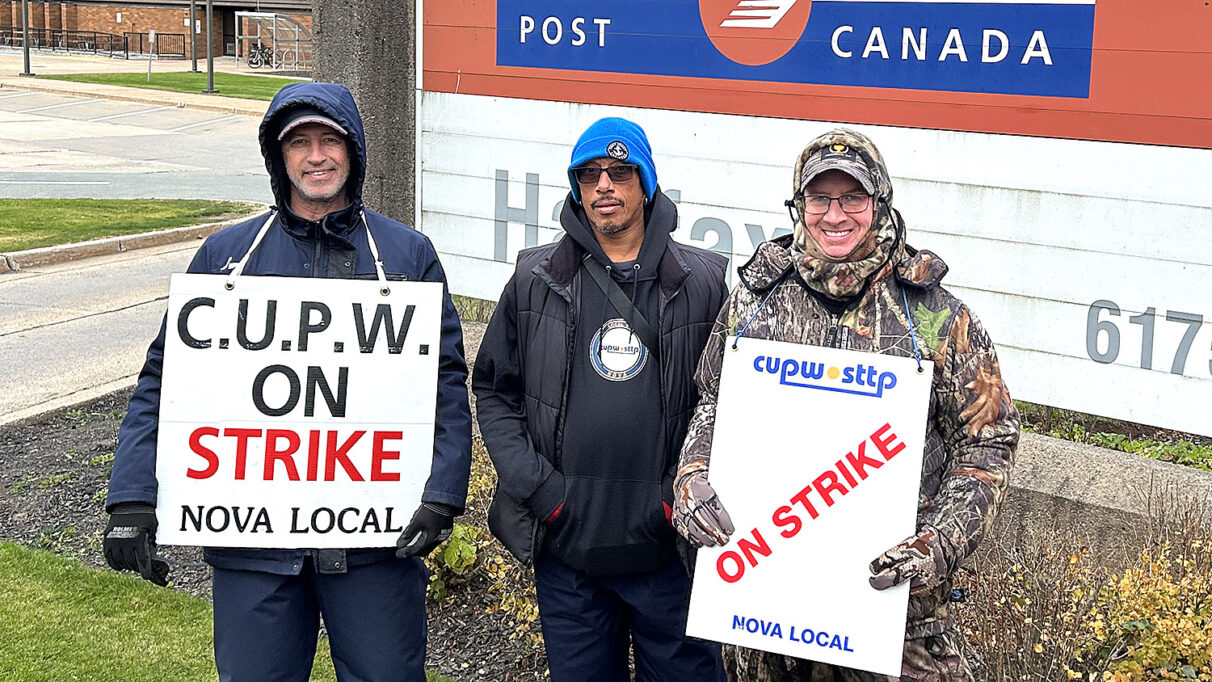Rural residents face greater challenges with prolonged Canada Post strike
Rural leaders in Nova Scotia say mail is still critical to many of their residents

caption
Paul Johnson walks the picket line in Halifax on Tuesday. The Canada Post strike began in the early morning on Nov. 19, 2024.Pictou County Warden Robert Parker knows that for some rural residents, the mail remains an essential service for maintaining contact with people outside their community.
With the Canada Post strike ongoing, Parker can foresee rural residents being more greatly affected than urban residents by the mail service disruptions.
“The farther you get from the centre, in very rural areas, people depend on their mailboxes, especially if they still have one,” said Parker. “That’s their communication with the outside world.”
While the use of mail services has been declining in Canada, Parker said he believes that physical mail remains an essential part of the lives of many rural folks. Part of the reason for this, according to Parker, is that many rural residents tend to be older.
“We have a lot of seniors living in our rural communities and it’s so important to them to receive — whether it’s a note from somebody in the mail, whether it’s a Christmas card or whatever — it’s all about isolation and mental health,” said Parker. “To some people, the high point of the day might be you go to the mailbox, see if you get anything.”
Canada Post has agreed to continue delivering government cheques during the strike, which the corporation says “ensures government financial assistance delivered by mail will reach seniors and other Canadians who rely on it.”
This will not include, however, the delivery of other forms of mail which Parker believes are important to rural and senior residents’ sense of connection to the wider community.

caption
Paul Johnson (left), Brian Lee-Deer (centre) and Mark Moffatt (right) are Canada Post workers on the Almon Street picket line.Troy MacCulloch is the chief administrative officer for the County of Richmond. He agrees with Parker, saying that he anticipates that Richmond residents will be “impacted hugely” by the strike if it continues for an extended period.
MacCulloch noted that for rural residents of Richmond County, the nearest parcel drop-off locations for alternative mail couriers to Canada Post are in municipalities in different counties.
“Sydney is the close one to the eastern side of our county, and then Port Hawkesbury is the one closest to the western side of our county,” said MacCulloch. Those would be the towns that Richmond residents would have to travel to in order to access destination points for couriers such as FedEx, Purolator and UPS.
This means longer driving times for rural residents relying on physical mail services, according to MacCulloch, which is an additional cost they will have to pay on top of the already higher prices that alternative couriers usually charge for delivery services.
Parker said that he didn’t think Pictou County residents were often using couriers such as FedEx and UPS before the Canada Post strike because of the high cost, and doesn’t think many people living in Pictou even know how to send a parcel through those couriers.
“The cost of living’s so high now that people have to be careful what they’re spending and those methods of shipping are often much higher,” said Parker.
Parker sees the mail as a still-critical part of some peoples’ lives and said he thinks the strike upsets normal life significantly.
“The general public is sort of held hostage, almost, whenever the mail stops,” said Parker.
About the author

Emily Enns
Emily Enns is a Master of Journalism student at King's. She has a BA degree from the University of Manitoba, majoring in history.
